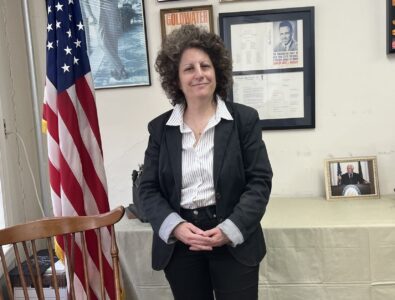In the wake of a large oil spill into Gravesend Bay that nearly went unnoticed, 43rd District Councilmember Vincent Gentile has introduced legislation whose goal is to protect those living in the area from hazardous chemicals present in city water bodies.
According to a statement issued by his office on August 24, Int. 1689 and Int. 1690, part of Gentile’s Shorefront Notification Package, would mandate that the Office of Emergency Management, Department of Environmental Protection and the Department Of Health and Mental Hygiene notify local councilmembers and community boards of environmental hazards, including oil spills.
“Earlier this year, a 27,000-gallon oil spill off the coast of Southwest Brooklyn was nearly swept under the rug, if not for the vigilance of environmental advocates and the media. By failing to notify any local elected officials, the state potentially jeopardized the health and safety of our constituents,” said Gentile, referring to the oil spill that leaked diesel fuel into Gravesend Bay in March of this year.
“When an oil spill, sewage overflow or any other related ecological disaster dangers water or shoreline quality, the city should use all the tools at our disposal to expeditiously notify the City Council, affected councilmembers, and affected community boards of such toxins. Local elected officials are better equipped to disseminate this information to residents than officials in Albany,” continued Gentile.
Both pieces of legislation are endorsed by the Natural Resources Protective Association, according to an email from its President Jim Scarcella to Gentile’s office.
But, local environmental activist Ida Sanoff, who serves as executive director of the Natural Resources Protective Association, contends that the crux is stepping up enforcement using existing laws. With respect to Gentile’s legislation, she told this paper that the state already is responsible for oversight.
“To me, it’s like asking the cart to pull the horse,” she said. “We have laws on the book, but what good are the laws without enforcement?
“The state has to step up its game,” she added, suggesting that more inspectors “may be what the issue requires.”
Gravesend Bay — where the city, despite a years-long protest, is in the process of constructing a waste transfer station — has long been a nexus of concern for area residents and environmentalists. Unexploded World War II munitions lie at the bottom of the body of water, which is also contaminated by a variety of toxins spewed by the Southwest Brooklyn incinerator, which was found to be operating without a permit from the 1950s through the 1980s.
Among the chemicals believed to be in the soil, as a result of the operation of the incinerator, are contaminants such as Class C acutely toxic levels of dioxins, lead, mercury, chlordanes and Mirex (an ant killer insecticide banned by the EPA in 1976.
The current bills are co-sponsored by fellow Brooklynite 45th District Councilmember Jumaane Williams and 22nd District Councilmember Costa Constantinides of Queens.
Additional reporting contributed by Helen Klein.

 The color of right: B’klyn GOP, Conservative leaders see blue area trending red
The color of right: B’klyn GOP, Conservative leaders see blue area trending red  In Public Service: State Senator Kevin Parker
In Public Service: State Senator Kevin Parker